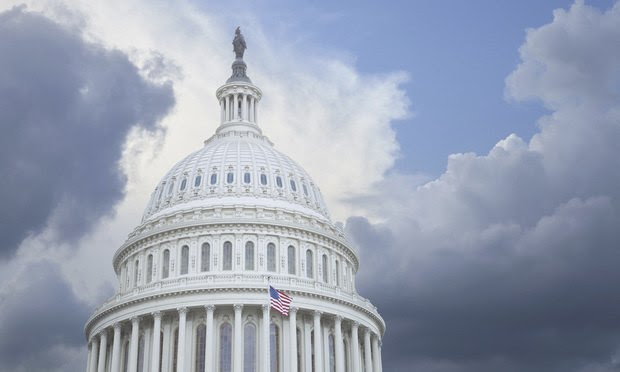Higher Law: Cannabis Insurance Myths | Pot & Politicians: New Report | In the Weeds & More
This week, we look at myths about cannabis insurance. Plus, a marijuana industry group says legalization is a winning political issue. So why are so few politicians championing the cause? Scroll down to see who got the work. Thanks for reading Higher Law.
September 20, 2018 at 04:00 PM
7 minute read
Welcome back to Higher Law, our weekly briefing on all things cannabis. I'm Cheryl Miller, reporting for Law.com from Sacramento, where Gov. Jerry Brown on Wednesday vetoed a bill that would have allowed marijuana operators to deduct business expenses from their state taxes. The issue, Brown said in a veto message, should be addressed in the annual budget process, not legislation.
Internal Revenue Code Section 280E, and more specifically, California's conformity with it, lives on for now.
This week, we look at myths about cannabis insurance. Plus, a marijuana industry group says legalization is a winning political issue. So why are so few politicians championing the cause? Scroll down to see who got the work.
'Debunking Cannabis Insurance'
I recently had a chance to check out a webinar broadcast by National Cannabis Insurance Services, Inc. called “Mythbusters: Debunking Cannabis Insurance Myths & Misconceptions.” And yes, as you might expect, speakers Mike Bush and Mallory Czuchra were quick to note that Myth No. 1—that insurance policies do not cover cannabis operations—is incorrect.
What surprised me a bit was the number of exclusions that they've seen tucked away in policies that prevent coverage for things most people would associate with a cannabusiness, such as Schedule 1 drugs and psychotropic substances.
“All policies are not created equal,” Czuchra said, echoing a warning I've heard repeatedly from lawyers in the cannabis space.
Another myth they listed: all cannabis products are rigorously tested so product liability coverage isn't warranted. Czuchra said that in California this summer, a cannabis product that passed initial lab tests went to market only to be recalled later when a state review concluded that the product did not meet contaminant standards.
“We saw several other recalls in California this past summer—edibles, vape cartridges, pre-rolls—and they're expected to keep happening as the industry continues to evolve,” Czuchra said. “With strict liability anyone in a supply chain can be held liable.”
With the average cost of defending a product liability claim running around $876,000, she added, that bill will eat up a $1 million policy limit pretty quickly.
>> The big takeaway from the webinar for cannabis businesses and the professionals that counsel them: Get a cannabis-specific policy and read it with a fine-toothed comb.
Pot and Politicians
The National Cannabis Industry Association released a report this week that concludes marijuana legalization—particularly medical marijuana—is a winning, but largely untapped, political issue.
“The New Politics of Marijuana” cites polls showing majority support for state-legal medical cannabis in red states such as Missouri and Utah. Some “ ambitious” Democratic and Republican candidates have run on a cannabis-reform platform, the report says, but “neither major party has yet fully embraced the issue despite immense public support.”
That may be because support for the concept of marijuana legalization and the reality of having grows and shops in one's neighborhood are two different things. Californians overwhelmingly backed a regulated recreational market in 2016. Fewer than one in three California cities authorize any kind of cannabis business within their borders.
But Aaron Smith, the NCIA's executive director, said times are changing.
“Voters are clearly recognizing the benefits of replacing illegal marijuana markets with well-regulated, responsible businesses,” Smith said. “Policymakers on both sides of the aisle are beginning to wake up to this reality and candidates who fully embrace the issue this election cycle will reap the political benefits for years to come.”
Who Got the Work
• Salt Lake City firm Kirton McConkie has taken a lead role in critiquing Utah's medical marijuana initiative, Proposition 2, on behalf of The Church of Jesus Christ of Latter-day Saints. In May, the firm issued a 31-point analysis of the measure that the Mormon Church said “raises grave concerns” about “serious adverse consequences.” After the pro-initiative Libertas Institute issued a critique of the report's findings, Kirton McConkie hit back with its own rebuttal to the rebuttal this week. Church leaders, pointing to the law firm's report, say that while they don't oppose a highly regulated medical marijuana program, they believe Proposition 2 goes too far.
• Farella Braun + Martel partner Ryan Lowther has been named chair of the Bar Association of San Francisco's new Cannabis Law Committee. Lowther chairs Farella Braun's cannabis industry practice, which launched in 2016. The Cannabis Law Committee will host its inaugural fall conference: “Views From the Frontier: Practicing Law in the Cannabis Space” on Oct. 4.
In the Weeds
>> The former U.S. attorney for Kansas called the continued Schedule 1 classification of cannabis “absurd” and said his time as a federal prosecutor convinced him that enforcement of anti-marijuana laws was “immoral.” Barry Grissom, an Obama appointee who served as U.S. attorney from 2010 to 2016, told a Missouri Cannabis Industry Association conference that while he was still a federal prosecutor he visited the National Organization for the Reform of Marijuana Laws' Washington, D.C. office and said “I'm here to help.” [The Kansas City Star]
>> Speaking of federal prosecutors, the current U.S. attorney for Utah says the political debate over a medical marijuana initiative in his state is overlooking a key fact: “Marijuana is against the law, federal law.” John Huber told reporters that he can't say what his office will do if Utah voters approve the initiative. “But we enforce these laws now,” he added, “and I suspect we will enforce federal law in the future.” [Deseret News]
>> A Florida agriculture commissioner candidate called on her state to charter a marijuana bank. Democrat Nikki Fried, an attorney and medical marijuana lobbyist knows about banking-access trouble first-hand. First Wells Fargo and then BB&T closed her campaign's accounts because of her ties to the legal marijuana industry. Fried said on a conference call that she wants “a national state-bank that is controlled by the [state] Cabinet that we can take dollars from companies and have it housed in one location.” [Daily Business Review]
>> Manhattan DA Cyrus Vance says he wants marijuana entrepreneurs “to be successful and legal.” Vance told those attending CannaGather that legalization is coming to New York. Vance said he's talked to prosecutors and police all over the country and is convinced “that we didn't, in New York state, have to be afraid of legalization.” [New York Post]
>> A Massachusetts credit union will begin serving licensed marijuana companies on Oct. 1. GFA Federal Credit Union is partnering with Colorado-based Safe Harbor to become the first financial institution in the state to openly welcome cannabis-related clients. GFA won't offer loans to marijuana businesses and will only be accepting 15 to 20 clients initially. [The Telegram & Gazette]
>> Fishmonger offers lobsters some herb before the butter*. That's right, the owner of Charlotte's Legendary Lobster Pound in Southwest Harbor, Maine is planning on mellowing out some of her crustaceans with some marijuana smoke before they hit the boil pot. Owner Charlotte Gill is also a registered medical marijuana caregiver. *A tip of the hat to The Washington Times editor who wrote this headline. [AP]
>> “Canadian cannabis stock Tilray has, to put it mildly, been on a strange trip.”What to make the high-flying, and volatile, shares? [CNN Money]
All the Calendar Things
Sept. 24-27: New York's regulated marijuana “listening sessions” tour makes stops in Queens, Brooklyn, Staten Island and Long Island. The state is taking public comments at locations around the state on the potential for a legalized marijuana program.
Sept. 26-29: The Cannabis World Congress & Business Exposition takes place in Los Angeles. Scheduled speakers include Lori Ajax, chief of California's Bureau of Cannabis Control; Cat Packer, executive director of the city of Los Angeles' Department of Cannabis Regulation; and Tom Zuber, managing partner of Zuber Lawler & Del Duca.
Sept. 26:The New Jersey Cannabusiness Association hosts an industry update and networking event.
This content has been archived. It is available through our partners, LexisNexis® and Bloomberg Law.
To view this content, please continue to their sites.
Not a Lexis Subscriber?
Subscribe Now
Not a Bloomberg Law Subscriber?
Subscribe Now
NOT FOR REPRINT
© 2025 ALM Global, LLC, All Rights Reserved. Request academic re-use from www.copyright.com. All other uses, submit a request to [email protected]. For more information visit Asset & Logo Licensing.
You Might Like
View All
NY Cannabis Marketing Rulings / Rescheduling Effects / Honigman's Work on Trademark Suit / Goodbye
9 minute read
Workplace Weed and Labor Pacts / State AGs and Hemp / Maryland Licensing Suit / Vicente Sues Recruiter
9 minute readTrending Stories
- 1Meta Pulls Plug on DEI Programs
- 2On the Move and After Hours: Meyner and Landis; Cooper Levenson; Ogletree Deakins; Saiber
- 3State Budget Proposal Includes More Money for Courts—for Now
- 4$5 Million Settlement Reached With Stone Academy
- 5$15K Family Vacation Turned 'Colossal Nightmare': Lawsuit Filed Against Vail Ski Resorts
Who Got The Work
Michael G. Bongiorno, Andrew Scott Dulberg and Elizabeth E. Driscoll from Wilmer Cutler Pickering Hale and Dorr have stepped in to represent Symbotic Inc., an A.I.-enabled technology platform that focuses on increasing supply chain efficiency, and other defendants in a pending shareholder derivative lawsuit. The case, filed Oct. 2 in Massachusetts District Court by the Brown Law Firm on behalf of Stephen Austen, accuses certain officers and directors of misleading investors in regard to Symbotic's potential for margin growth by failing to disclose that the company was not equipped to timely deploy its systems or manage expenses through project delays. The case, assigned to U.S. District Judge Nathaniel M. Gorton, is 1:24-cv-12522, Austen v. Cohen et al.
Who Got The Work
Edmund Polubinski and Marie Killmond of Davis Polk & Wardwell have entered appearances for data platform software development company MongoDB and other defendants in a pending shareholder derivative lawsuit. The action, filed Oct. 7 in New York Southern District Court by the Brown Law Firm, accuses the company's directors and/or officers of falsely expressing confidence in the company’s restructuring of its sales incentive plan and downplaying the severity of decreases in its upfront commitments. The case is 1:24-cv-07594, Roy v. Ittycheria et al.
Who Got The Work
Amy O. Bruchs and Kurt F. Ellison of Michael Best & Friedrich have entered appearances for Epic Systems Corp. in a pending employment discrimination lawsuit. The suit was filed Sept. 7 in Wisconsin Western District Court by Levine Eisberner LLC and Siri & Glimstad on behalf of a project manager who claims that he was wrongfully terminated after applying for a religious exemption to the defendant's COVID-19 vaccine mandate. The case, assigned to U.S. Magistrate Judge Anita Marie Boor, is 3:24-cv-00630, Secker, Nathan v. Epic Systems Corporation.
Who Got The Work
David X. Sullivan, Thomas J. Finn and Gregory A. Hall from McCarter & English have entered appearances for Sunrun Installation Services in a pending civil rights lawsuit. The complaint was filed Sept. 4 in Connecticut District Court by attorney Robert M. Berke on behalf of former employee George Edward Steins, who was arrested and charged with employing an unregistered home improvement salesperson. The complaint alleges that had Sunrun informed the Connecticut Department of Consumer Protection that the plaintiff's employment had ended in 2017 and that he no longer held Sunrun's home improvement contractor license, he would not have been hit with charges, which were dismissed in May 2024. The case, assigned to U.S. District Judge Jeffrey A. Meyer, is 3:24-cv-01423, Steins v. Sunrun, Inc. et al.
Who Got The Work
Greenberg Traurig shareholder Joshua L. Raskin has entered an appearance for boohoo.com UK Ltd. in a pending patent infringement lawsuit. The suit, filed Sept. 3 in Texas Eastern District Court by Rozier Hardt McDonough on behalf of Alto Dynamics, asserts five patents related to an online shopping platform. The case, assigned to U.S. District Judge Rodney Gilstrap, is 2:24-cv-00719, Alto Dynamics, LLC v. boohoo.com UK Limited.
Featured Firms
Law Offices of Gary Martin Hays & Associates, P.C.
(470) 294-1674
Law Offices of Mark E. Salomone
(857) 444-6468
Smith & Hassler
(713) 739-1250














